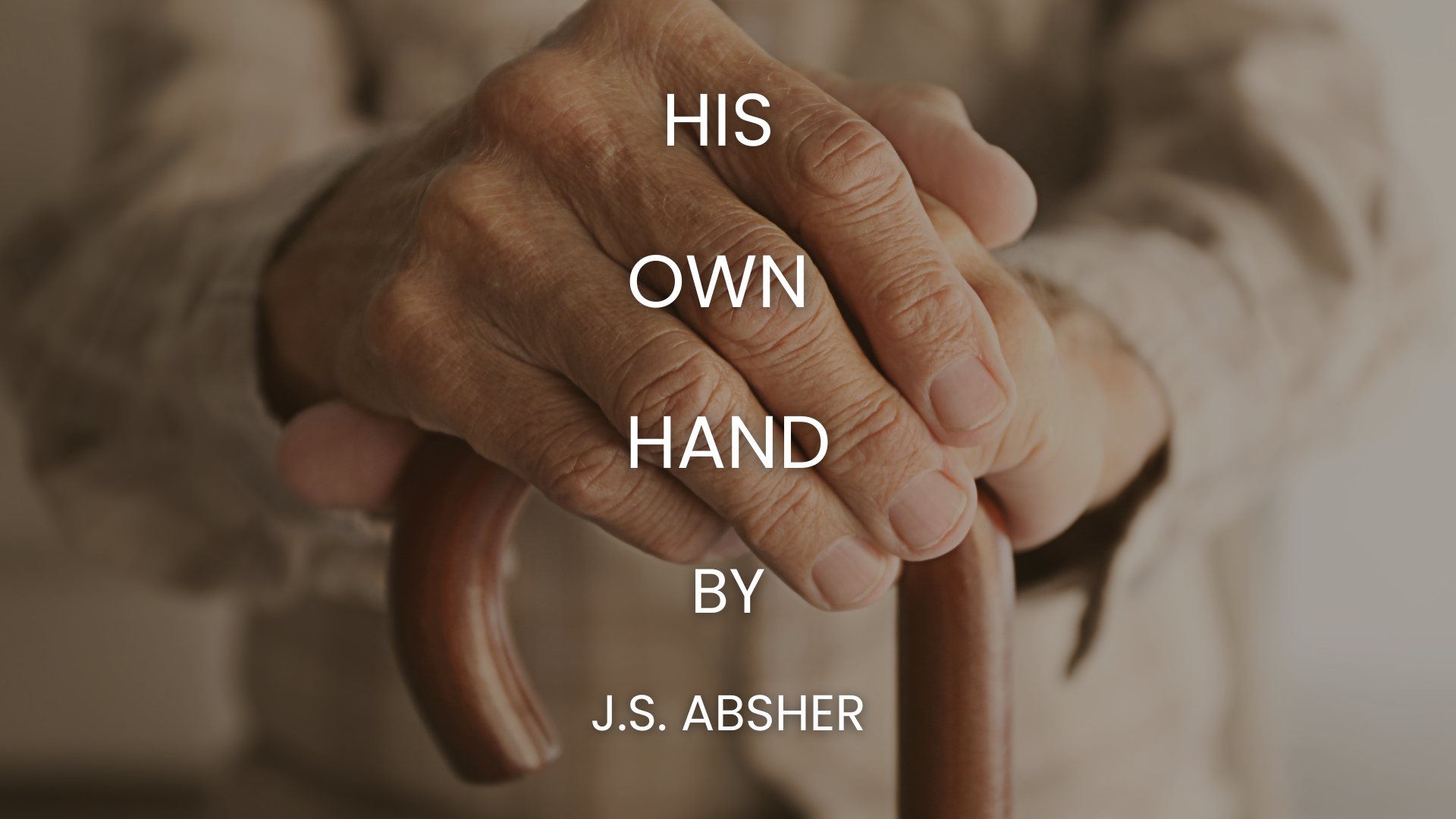Articles/Essays – Volume 55, No. 4
First Place: His Own Hand
I desire to be to the Eternal Goodness what his own hand is to a man.
—Theologica Germanica
i. What the Right Hand Is
Take my right hand—the index finger crooked
from a long-forgotten break; the dint
where a melon spoon of cells, precancerous,
has been scooped out; the little crescent
moons under each nail, the nails badly bitten;
the worn-out cartilage at the base of the thumb
that ruins my grip and sometimes sleep, when bone
of metacarpal scrapes trapezium:
it’s an old hand, but take it, and all
it screwed in or up, hammered or caressed,
lines botched, weeds pulled, promises kept. Small-
time doer even when it does its best,
it is doubled in yours, and fear is halved
of age manhandling our kind and loving craft.
ii. What the Left Hand Does
Age manhandles my kind and loving craft.
Item: My left is acting on its own.
Example: As I proof a poem online,
it hovers over the keys, then slowly
descends, wrist relaxes, a fingertip
drops, depressing almost always a d or t,
plosive consonants that blow up the word
they land on, bomblets from a passing plane.
This is not how I pictured my later years,
worried about an errant hand. Item:
When I pass my cluttered desk, how often
it drags off a tottering book or stack of papers.
The left thumb became arthritic first:
that hand lifts and grasps, the doctor said,
its partner finesses. Right has been
the writer since I was young, Left
the written on. At ballgames, the right
goes over the heart, the left dangles. Right
throws, Left wears a glove to catch.
Dexter acts, Sinister suffers. Item:
The right waves happily as a child departs,
the left clasps the back of the neck in grief.
iii. Prodigal
He first clasped the neck of his son in joy,
not grief—the aging father in Rembrandt’s
Return—then the shoulder and back of his boy
kneeling, one shoe off, one on. The large hand
on our right, Father’s left hand, is the roughened
hand of clenching and judging, the peasant’s
who handed his queen, unwomaned, a gift of snakes.
The hand on our left, smaller for pity’s sake,
is feminine and soothing, made to caress.
The big hand is grasping the shoulder in fear
he will lose the boy again; more hopeful, gentler,
the other touches him with lovingkindness.
Return again and be Our sons and daughters,
Yahweh pleads, Return: We will be Father
and Mother. Prodigal says, I am a man:
look at these scars on my hand.
iv. Fingers
Look at the scars on my hand
and on my fingers, clumsy claws
that are fat and short, raw
sausages, not digits—spillers,
knockers over, arthritic grippers,
nailhead missers and thread strippers,
packaging grapplers, tyers of shoes
that won’t stay tied, slappers
of skeeters, swatters of flies,
typo makers, smearers, droppers
of eggs and messy breakables,
pimple-, bubble-, button poppers,
filchers of river-rounded pebbles
for garden paths, china breakers
and rim chippers, crystal-crackers
(they’ve cost me dearly), rock skippers,
just once (I swear) bird flippers,
zipper-downers and zipper-uppers,
and takers of the Lord’s Supper.
Often, too often, have they failed me—
look at the piles of scribbled verse—
but did not punch or thieve or worse,
or do much shameful or barbarous,
unlike the fingers Rodin sculpted
bristling and lurking in the dark,
that (wrote Rilke) seemed to bark
like the five throats of Cerberus.
Listen to the Out Loud audio version of this poem here.


 Back to full Issue
Back to full Issue

